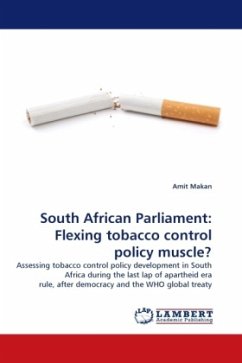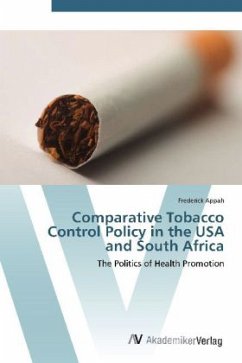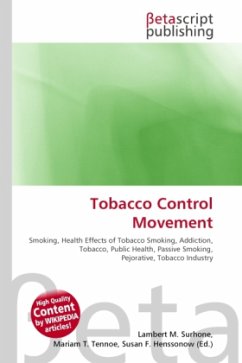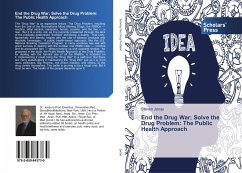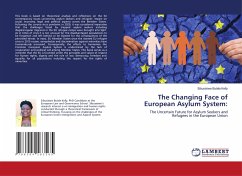
Mapping the role of basic rights in the Hungarian tobacco-control
Who Should Be Protected?
Versandkostenfrei!
Versandfertig in 6-10 Tagen
39,99 €
inkl. MwSt.

PAYBACK Punkte
20 °P sammeln!
The book examines the role of basic rights in the Hungarian tobacco control policy which was effective from January 2012. In spite of the importance of the right to health advocated in this context by non-smokers,other actors' rights should also be protected in the process of lawmaking.The research attempts to identify the various claims of rights which are at stake with the forthcoming ban and explore the possible conflicts arise from the legal policy. Four basic rights are at the core of discussion:the right to health,the right to health care,privacy right and the right to information.Interv...
The book examines the role of basic rights in the Hungarian tobacco control policy which was effective from January 2012. In spite of the importance of the right to health advocated in this context by non-smokers,other actors' rights should also be protected in the process of lawmaking.The research attempts to identify the various claims of rights which are at stake with the forthcoming ban and explore the possible conflicts arise from the legal policy. Four basic rights are at the core of discussion:the right to health,the right to health care,privacy right and the right to information.Interviews were conducted with three groups of stakeholders (healthcare workers,the public and catering businesses)to connect the legal framework of rights and the empirical relevance.Opinion collected is analysed in relation to the different notions of rights.Further scenarios of special category of non-smokers(children, women and workers)are presented with respect to violations of their rights.The thesis concludes with a discussion on limitations of the sole reliance on legal policy as an instrument for tobacco control and calls for a combination of interventions and respecting individuals'rights.



